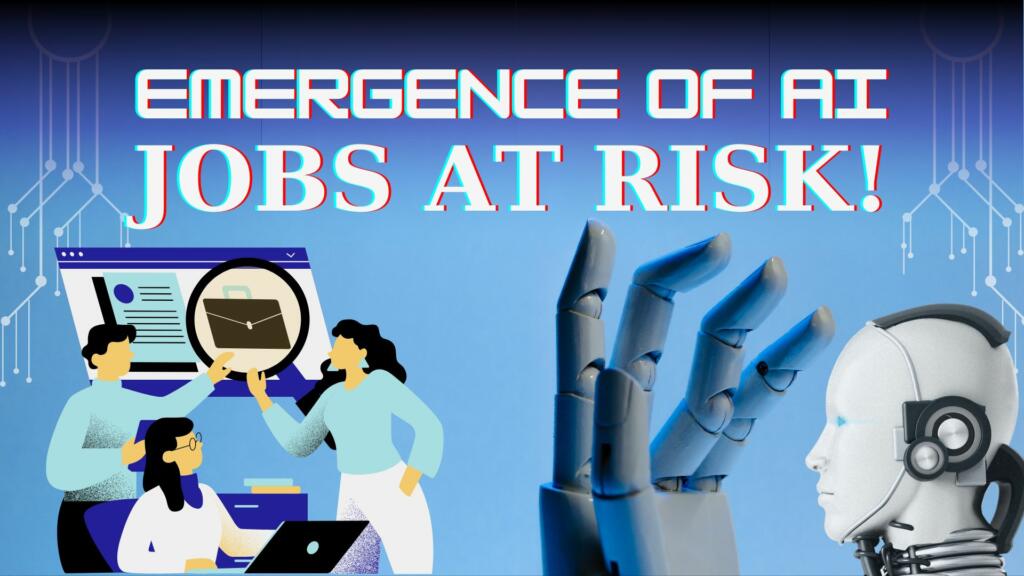In the realm of technological advancement, artificial intelligence (AI) stands as both a beacon of progress and a harbinger of potential crisis. While its promise to revolutionize industries and streamline processes is undeniable, the shadow it casts over the job market grows longer with each passing day. In the United Kingdom, this ominous specter looms large, threatening the livelihoods of millions unless swift and decisive action is taken.
The Grim Reality: Millions at Risk
Recent warnings from the Institute for Public Policy Research (IPPR) paint a stark picture of the impending crisis. It’s estimated that up to 8 million workers in the UK are teetering on the brink of unemployment due to the encroachment of AI into various sectors. Shockingly, this figure represents over 60% of the current job market, highlighting the widespread impact of AI integration.
AI’s Incursion: A Growing Threat
The IPPR’s report highlights a chilling reality: AI is already seeping into the fabric of employment, affecting 11% of tasks performed by UK workers. If current trends persist and companies continue to deepen their reliance on AI technologies, this figure is projected to skyrocket, encompassing nearly 60% of all job tasks. From part-time positions to high-paying roles, no corner of the job market is immune to the disruptive force of AI.
The Perilous Path Ahead
The ramifications of this technological upheaval extend far beyond mere job losses. It threatens to unravel the delicate social and economic fabric of the nation, leaving countless individuals adrift in an uncertain future. Customer service roles, entry-level positions, and back-office functions are particularly vulnerable, but the specter of automation looms over industries far and wide.
Government’s Dilemma
Even as the government places its faith in AI to address productivity woes, the risks loom large. Chancellor Rishi Sunak’s pledge of £800 million to bolster public-sector productivity through technology and AI investment may offer short-term gains, but the long-term consequences cannot be ignored. Without proactive measures to safeguard jobs and retrain workers for the AI-driven economy, the UK risks plunging headlong into a “jobs apocalypse.”
Also Read: Controversy in Code: Decoding Google’s Gemini AI Fallout
Navigating the Crisis
Carsten Jung, a senior economist at IPPR, underscores the transformative potential of AI while issuing a sobering warning. Without intervention from government, employers, and unions, the impending wave of automation threatens to engulf the labor market, leaving devastation in its wake. The time for action is now, before the tide of technological progress becomes an unstoppable force of destruction.
Policy Recommendations
Yet, amidst the doom and gloom, glimmers of hope emerge. The IPPR’s report emphasizes the pivotal role of government policy in shaping the impact of AI adoption. Through strategic interventions such as fiscal incentives, regulatory changes, and support for upskilling initiatives, the UK can navigate the treacherous waters of technological disruption and emerge stronger on the other side.
Bridging the Skills Gap
Janine Chamberlin, UK country manager for LinkedIn, echoes this sentiment, stressing the urgent need for skills development initiatives to bridge the gap between existing competencies and the demands of the AI era. As the UK lags behind other nations in AI skills, investing in workforce development is not just a matter of economic necessity but a moral imperative.
In the face of an uncertain future, one thing remains clear: the curse of AI can only be vanquished through collective action and unwavering resolve. The time to act is now, lest we consign millions to the scrapheap of obsolescence in the relentless march of progress.
Also Read: Nvidia’s Blackwell: Pioneering the Era of Generative AI Revolution
